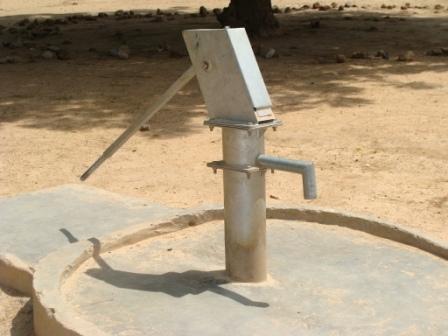There are no products in your shopping cart.
| 0 Items | £0.00 |

 SANITATION experts have urged the federal government to come up with standardised regulations governing the sinking of boreholes as a means of guaranteeing water supply across the country.
SANITATION experts have urged the federal government to come up with standardised regulations governing the sinking of boreholes as a means of guaranteeing water supply across the country.
At the moment, Nigeria's federal and state governments are struggling to meet the country's water supply demands. As a result, many individuals and corporate bodies have resorted to drilling their own boreholes but they are not adhering to ant standard regulations or guidelines, which is having a devastating effect on the environment.
According to the Association of Water Well Drilling Rig Owners and Practitioners (Awdrop), having a regulated structure will not only guarantee supply but will also serve as a source of internally generated revenue for all tiers of government. Awdrop experts also stated that profiling all water well drilling rigs operating in Nigeria's 36 states, will give a baseline insight of probable causes and effects of drilling activities in the country.
Awdrop president Michael Ale and its secretary Yomi Adeyemi, published a communiqué at the end of the association's fifth annual general meeting in Abuja. Titled Next Level in Underground Water Resources and Management in Nigeria, their report called for the establishment of a National Unified Task Force towards quality environmental impact management to achieve effective and efficient water supply strategies in Nigeria.
While condemning the collection of what it described as a non-statutory fee from the general public or drilling rig operators through harassment by the illegal task force, the association called for an immediate stop to the activities. It argued that the illegal task force was set up without recourse to the state executive and legislative arm was inappropriate, adding that only the state water regulatory commission has the lawful power to collect such fees.
“There is a need for an upgrade in economic value chain leading to indigenously fabricated equipment and materials from the prospecting to the completion stage in order to generate employment, alleviate poverty, advance technology and productivity, Enhance industrial revolution and implore competitiveness and growth,” the communiqué added.
Similarly, it stressed the need for an immediate government financial intervention in the revitalisation of the moribund indigenous UPVC manufacturing company sectors, along the value chain of the water supply industry.